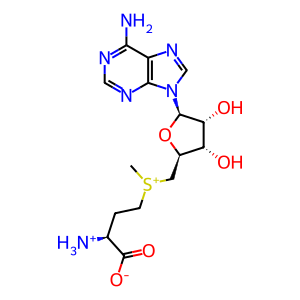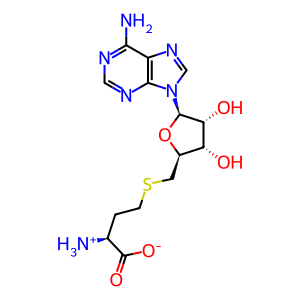Reaction: The GSDME gene promoter is hypermethylated
- in pathway: Defective pyroptosis
5-Methylation of cytosine residues in DNA is a heritable epigenetic mark that regulates gene expression. DNA methyltransferases (DNA MTase, (DNMTs)) catalyze the transfer of the CH3 group from S‑adenosylmethionine (AdoMet) to DNA (Melanie E & Lacey M 2014; Laisne M et al. 2018). DNMTs associate with EZH2 of the Polycomb Repressive Complex 2 (PRC2) (Vire et al. 2006). Aberrant promoter methylation is considered to be a hallmark of cancer (Ehrlich M et al. 2002; Dong Y et al. 2014; Lam K et al. 2016; Croes L et al. 2018). Epigenetic inactivation of GSDME due to hypermethylation of the GSDME promoter region has been linked to tumorigenesis (Akino K et al. 2007; Kim MS et al. 2008a,b; Croes L et al. 2017, 2018; Ibrahim J et al. 2019). Treatment with the DNA methyltransferase inhibitors such as FDA‑approved decitabine (5‑aza‑2'‑deoxycytidine or DAC) may elevate GSDME expression in certain cancer cells (Akino K et al. 2007; Fujikane T et al. 2009; Wang Y et al. 2017).
Reaction - small molecule participants:
AdoHcy [nucleoplasm]
AdoMet [nucleoplasm]
Reactome.org reaction link: R-HSA-9710490
======
Reaction input - small molecules:
S-adenosyl-L-methionine zwitterion
Reaction output - small molecules:
S-adenosyl-L-homocysteine zwitterion
Reactome.org link: R-HSA-9710490


